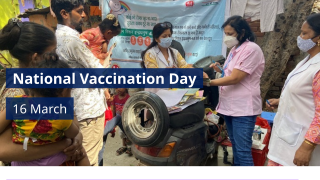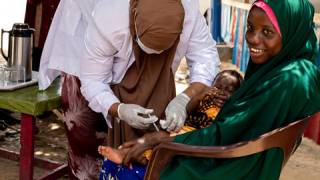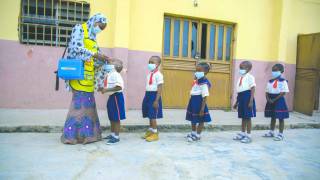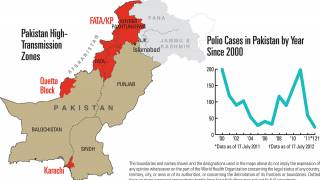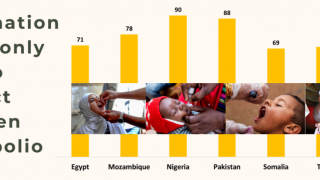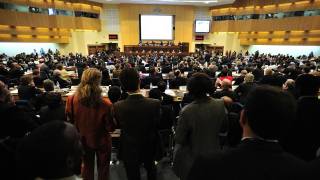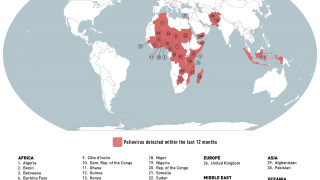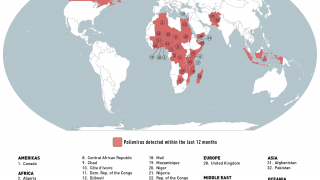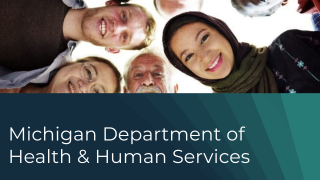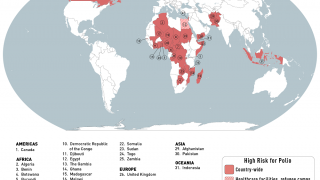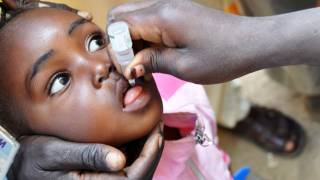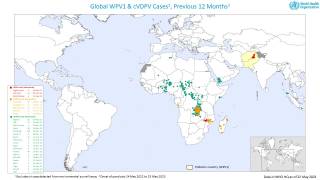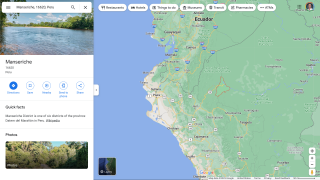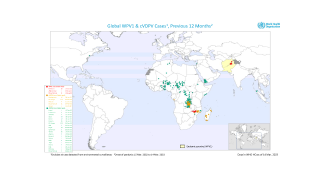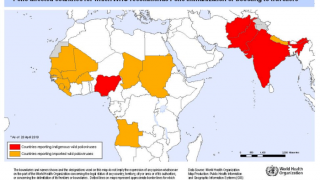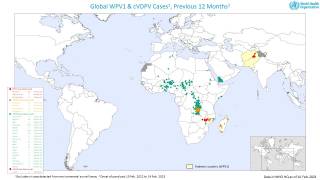Mumbai India Reacts to Contaminated Polio Vaccines
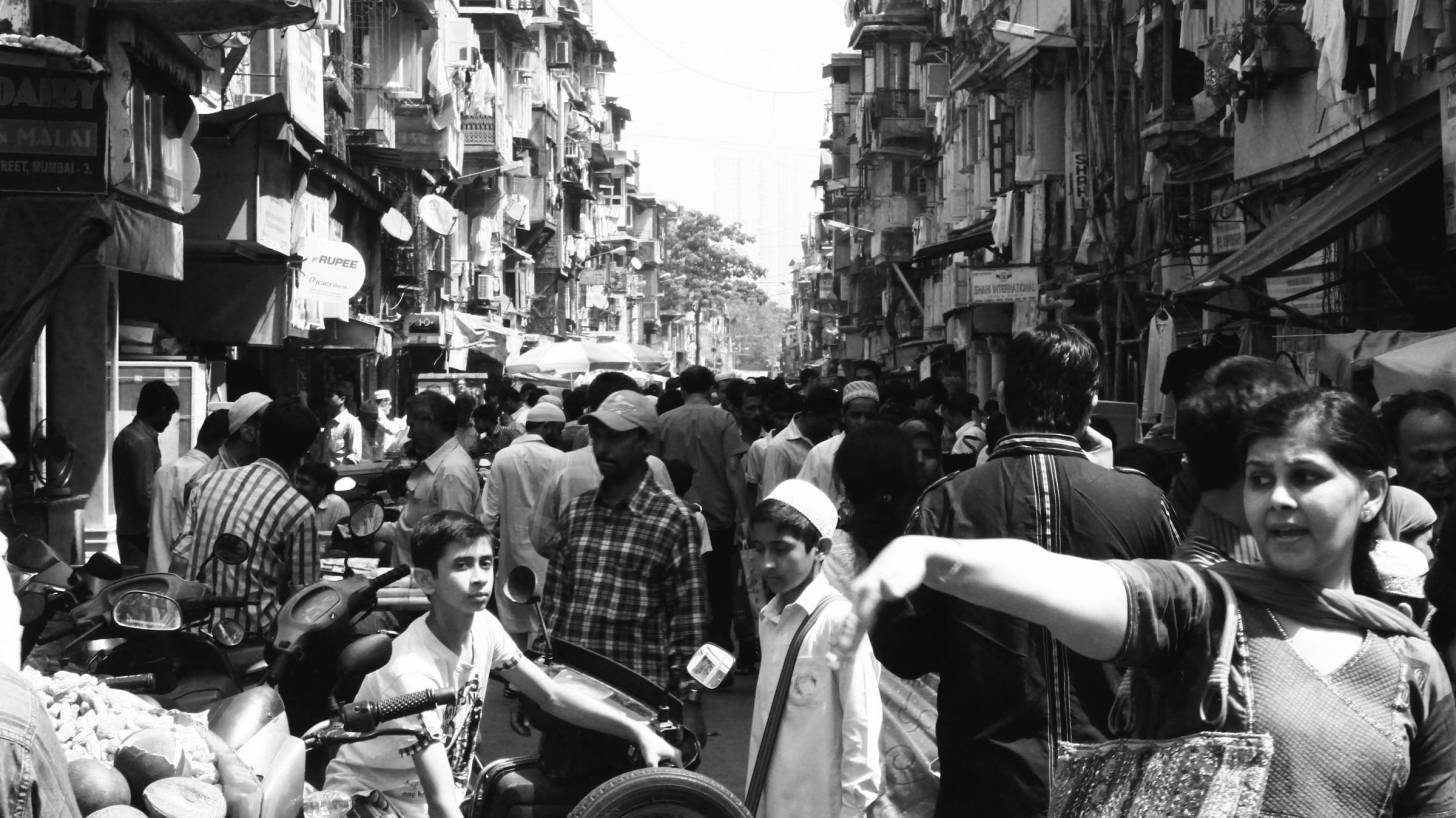
The Indian state government is launching a special polio immunization campaign for 1,200 children in 4 wards today.
This vaccination campaign is aimed at children living in Mumbai, India between 0-2 years of age, who missed their routine polio doses, said a report in The Times of India.
A child in that age group should get 5 doses of oral polio vaccine (OPV) and 2 doses of inactivated polio vaccine (IPV) injection for protection against all 3 polio strains, says the US Centers for Disease Control and Prevention (CDC).
The action follows the detection of type-2 vaccine-virus strain of polio, or poliomyelitis, in a sewage sample from Kurla, said India.com.
Following this discovery of the p2 vaccine-virus during August 2018, a polio screening drive was started in Kurla, Mankhurd, Deonar, Andheri East, Vikhroli, and Bhandup.
This report said it was still a mystery how the p2 vaccine-virus appeared in Mumbai's sewage.
Since the state’s public health minister had said that batches of vaccine suspected to be contaminated with the strain never reached the state of Maharashtra.
This re-vaccination campaign is related to the October 1, 2018, the World Health Organisation (WHO) announcement that a batch of the contaminated polio vaccines was distributed to children.
The Indian Health Ministry issued advisories for the 3 states to ensure that polio surveillance teams trace the children who have been given the contaminated vaccines.
Some vials of the oral polio vaccines contaminated with the type-2 poliovirus were administered to children in Maharashtra and Telangana, besides Uttar Pradesh, Health Ministry officials confirmed.
According to the CDC, after the declaration of eradication of wild poliovirus type 2 in 2015, all countries using oral poliovirus vaccine (OPV) switched from using trivalent OPV (tOPV) (containing vaccine virus types 1, 2, and 3) to bivalent OPV (bOPV) (containing types 1 and 3) in April 2016.
Polio is a crippling and potentially deadly disease that affects the nervous system. It is spread through contact with the feces (poop) of an infected person. It is also spread by drinking water or eating food that is contaminated with infected feces, says the CDC.
Vaccine-derived polioviruses (VDPVs), strains that have diverged from the live vaccine virus during prolonged circulation, can emerge in areas with inadequate OPV coverage and can cause outbreaks of paralysis.
Before the global switch from tOPV to bOPV, many circulating VDPV (cVDPV) outbreaks were caused by type 2 cVDPV (cVDPV2).
After the switch, two large cVDPV2 outbreaks occurred in 2017 in the Democratic Republic of the Congo and Syria, says the CDC.
Additionally, during July 2018, the CDC has issued a Level 2 Travel Alerts for Nigeria and Somalia.
Since 2000, the inactivated polio vaccine (IPV) is the only polio vaccine (4 doses) given to people in the USA, says the CDC.
The IPV vaccination is now a requirement when visiting various countries around the world.
Polio vaccination appointments can be easily scheduled at Vax-Before-Travel.
And vaccine discounts can be found here.
Vaccines, like any medicine, can have side effects. You are encouraged to report negative side effects of vaccines to the FDA or CDC.
Our Trust Standards: Medical Advisory Committee
- Post-scare, BMC to start special polio vaccine drive today
- Special Polio Drive to Reach Around 1,200 Mumbai Kids Who Missed Routine Doses Begins Today
- INDIA INTRODUCES THE INACTIVATED POLIO VACCINE
- Polio Vaccination: What Everyone Should Know
- 150,000 Indian Children May Have Received Contaminated Polio Vaccines



